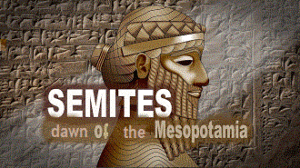
Arquivo para July 6th, 2023
The noosphere and oral culture
The period of oral culture predominated before 3000 BC, although there were scribes in Egypt, cuneiform writing in Mesopotamia and ancient Babylon, there was also writing in Ancient China and also in the civilizations originaries in the Americas: Mayans, Aztecs and Incas.
before 3000 BC, although there were scribes in Egypt, cuneiform writing in Mesopotamia and ancient Babylon, there was also writing in Ancient China and also in the civilizations originaries in the Americas: Mayans, Aztecs and Incas.
The form of dissemination of culture and, therefore, of the evolution of the noosphere was through prophets and oracles, whose main function was the transmission of oral culture and preceded literate and philosophical teaching, until we have a more notable turn in Greco-Jewish culture -Roman.
In biblical terms, according to Genesis reports, using genealogies presented in the bible, we can say that it is at least 6 thousand years old, but if we understand the narrative, Abel was a shepherd and Cain was a farmer, so this narrative begins at the moment when man becomes more sedentary and the civilizing process becomes clearer, the fact that Abel is a shepherd is symbolic for biblical language.
If this is a fact without historical proof and also Noah and the flood are still an eternal search for documentation, however their sons Shem and Ham can already be found in history, since the Semitic and Hamite peoples are registered in history, and Jafé who was to dwell in the tents of Shem.
The Semites were the dawn of the Mesopotamian cultures that peaked in Babylon (1792–1000 BC) and were later dominated by the Persians.
Prophets and oracles will be fundamental in ancient cultures, they should have a certain “divine” illumination so that history does not get corrupted and customs are changed.
According to Genesis 11, from the Flood to Abraham passed about 292 years, and from the birth of Abraham to the settlement of Jacob in Egypt passed about 290 years, ‘from Abram to the coming of Christ is about 2000 years, and then begins an era of written culture, and thus the gospels appear while in ancient Greece the Socratic and Platonic schools, since we know of Socrates through Plato and then the Aristotelian school, period that the schools and writings are fixed.
It is not about overcoming oral culture, but it appears together with writing, handwritten books, which later became famous for copyist monks, this period is called scriptorium.
Oral culture remains with native peoples, also among African peoples, printed writing will be a conquest of modernity, so to speak of schooling is to speak of modernity, and now we are in a new transition due to new media.

